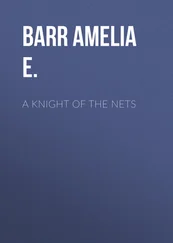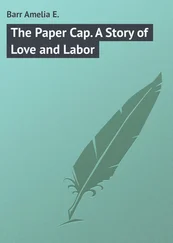Amelia Barr - Prisoners of Conscience
Здесь есть возможность читать онлайн «Amelia Barr - Prisoners of Conscience» — ознакомительный отрывок электронной книги совершенно бесплатно, а после прочтения отрывка купить полную версию. В некоторых случаях можно слушать аудио, скачать через торрент в формате fb2 и присутствует краткое содержание. Жанр: foreign_prose, на английском языке. Описание произведения, (предисловие) а так же отзывы посетителей доступны на портале библиотеки ЛибКат.
- Название:Prisoners of Conscience
- Автор:
- Жанр:
- Год:неизвестен
- ISBN:нет данных
- Рейтинг книги:5 / 5. Голосов: 1
-
Избранное:Добавить в избранное
- Отзывы:
-
Ваша оценка:
- 100
- 1
- 2
- 3
- 4
- 5
Prisoners of Conscience: краткое содержание, описание и аннотация
Предлагаем к чтению аннотацию, описание, краткое содержание или предисловие (зависит от того, что написал сам автор книги «Prisoners of Conscience»). Если вы не нашли необходимую информацию о книге — напишите в комментариях, мы постараемся отыскать её.
Prisoners of Conscience — читать онлайн ознакомительный отрывок
Ниже представлен текст книги, разбитый по страницам. Система сохранения места последней прочитанной страницы, позволяет с удобством читать онлайн бесплатно книгу «Prisoners of Conscience», без необходимости каждый раз заново искать на чём Вы остановились. Поставьте закладку, и сможете в любой момент перейти на страницу, на которой закончили чтение.
Интервал:
Закладка:
He spoke with a nervous rapidity, and Liot only answered:
“Step as you wish to.”
Bele fell a couple of feet behind, but continued to talk. “I have been round Skegg’s Point,” he said with a chuckling laugh. “I wanted to see Auda Brent before I went away for the winter. Lovely woman! Brent is a lucky fellow–”
“Brent is my friend,” answered Liot, angrily. But Bele did not notice the tone, and he continued:
“I would rather have Auda for a friend.” And then, in his usual insinuating, boastful way, he praised the woman’s beauty and graciousness in words which had an indefinable offense, and yet one quite capable of that laughing denial which commonly shielded Bele’s impertinence. “Brent gave me a piece of Saxony cloth and a gold brooch for her–Brent is in Amsterdam. I have taken the cloth four times; there were also other gifts–but I will say nothing of them.”
“You are inventing lies, Bele Trenby. Touch your tongue, and your fingers will come out of your lips black as the pit. Say to Brent what you have said to me. You dare not, you infernal coward!”
“You have a pretty list of bad words, Liot, and I won’t try to change mine with them.”
Liot did not answer. He turned and looked at the man behind him, and the devil entered into his heart and whispered, “ There is the venn before you. ” The words were audible to him; they set his heart on fire and made his blood rush into his face, and beat on his ear-drums like thunder. He could scarcely stand. A fierce joy ran through his veins, and the fiery radiations of his life colored the air around him; he saw everything red. The venn, a narrow morass with only one safe crossing, was before them; in a few moments they were on its margin. Liot suddenly stopped; the leather strings of his rivlins 2 2 Shoes made of untanned cowhide.
had come unfastened, and he dropped the stick he carried in order to retie them. At this point there was a slight elevation on the morass, and Bele looked at Liot as he put his foot upon it, asking sharply:
“Is this the crossing?”
Liot fumbled at his shoe-strings and said not a word; for he knew it was not the crossing.
“Is this the crossing, Liot?” Bele again asked. And again Liot answered neither yes nor no. Then Bele flew into a passion and cried out with an oath:
“You are a cursed fellow, Liot Borson, and in the devil’s own temper; I will stay no longer with you.”
He stepped forward as he spoke, and instantly a cry, shrill with mortal terror, rang across the moor from sea to sea. Liot quickly raised himself, but he had barely time to distinguish the white horror of his enemy’s face and the despair of his upthrown arms. The next moment the moss had swallowed the man, and the thick, peaty water hardly stirred over his engulfing.
For a little while Liot fixed his eyes on the spot; then he lifted his stick and went forward, telling his soul in triumphant undertones: “He has gone down quick into hell; the Lord has brought him down into the pit of destruction; the bloody and deceitful man shall not live out half his days; he has gone to his own place.”
Over and over he reiterated these assurances, stepping securely himself to the ring of their doom. It was not until he saw the light in Paul Borson’s house that the chill of doubt and the sickness of fear assailed him. How could he smile into Karen’s face or clasp her to his breast again? A candle was glimmering in the window of a fisherman’s cottage; he stepped into its light and looked at his hands. There was no stain of blood on them, but he was angry at the involuntary act; he felt it to be an accusation.
Just yet he could not meet Karen. He walked to the pier, and talked to his conscience as he did so. “I never touched the man,” he urged. “I said nothing to lead him wrong. He was full of evil; his last words were such as slay a woman’s honor. I did right not to answer him. A hundred times I have vowed I would not turn a finger to save his life, and God heard and knew my vow. He delivered him into my hand; he let me see the end of the wicked. I am not to blame! I am not to blame!” Then said an interior voice, that he had not silenced, “Go and tell the sheriff what has happened.”
Liot turned home at this advice. Why should he speak now? Bele was dead and buried; let his memory perish with him. He summoned from every nook of his being all the strength of the past, the present, and the future, and with a resolute hand lifted the latch of the door. Karen threw down her knitting and ran to meet him; and when he had kissed her once he felt that the worst was over. Paul asked him about the house, and talked over his plans and probabilities, and after an interval he said:
“I saw Bele Trenby’s ship was ready for sea at the noon hour; she will be miles away by this time. It is a good thing, for Mistress Sabiston may now come to reason.”
“It will make no odds to us; we shall not be the better for Bele’s absence.”
“I think differently. He is one of the worst of men, and he makes everything grow in Matilda’s eyes as he wishes to. Lerwick can well spare him; a bad man, as every one knows.”
“A man that joys the devil. Let us not speak of him.”
“But he speaks of you.”
“His words will not slay me. Kinsman, let us go to sleep now; I am promised to the fishing with the early tide.”
But Liot could not sleep. In vain he closed his eyes; they saw more than he could tell. There were invisible feet in his room; the air was heavy with presence, and full of vague, miserable visions; for “Wickedness, condemned by her own witness, is very timorous, and, being pressed with Conscience, always forecasteth grievous things.”
When Bele stepped into his grave there had been a bright moonlight blending with the green, opalish light of the aurora charging to the zenith; and in this mysterious mingled glow Liot had seen for a moment the white, upturned face that the next moment went down with open eyes into the bottomless water. Now, though the night had become dark and stormy, he could not dismiss the sight, and anon the Awful One who dwelleth in the thick darkness drew near, and for the first time in his life Liot Borson was afraid. Then it was that his deep and real religious life came to his help. He rose, and stood with clasped hands in the middle of the room, and began to plead his cause, even as Job did in the night of his terror. In his strong, simple speech he told everything to God–told him the wrongs that had been done him, the provocations he had endured. His solemnly low implorations were drenched with agonizing tears, and they only ceased when the dayspring came and drove the somber terrors of the night before it.
Then he took his boat and went off to sea, though the waves were black and the wind whistling loud and shrill. He wanted the loneliness that only the sea could give him. He felt that he must “cry aloud” for deliverance from the great strait into which he had fallen. No man could help him, no human sympathy come between him and his God. Into such communions not even the angels enter.
At sundown he came home, his boat loaded with fish, and his soul quiet as the sea was quiet after the storm had spent itself. Karen said he “looked as if he had seen Death”; and Paul answered: “No wonder at that; a man in an open boat in such weather came near to him.” Others spoke of his pallor and his weariness; but no one saw on his face that mystical self-signature of submission which comes only through the pang of soul-travail.
He had scarcely changed his clothing and sat down to his tea before Paul said: “A strange thing has happened. Trenby’s ship is still in harbor. He cannot be found; no one has seen him since he left the ship yesterday. He bade Matilda Sabiston good-by in the morning, and in the afternoon he told his men to be ready to lift anchor when the tide turned. The tide turned, but he came not; and they wondered at it, but were not anxious; now, however, there is a great fear about him.”
Читать дальшеИнтервал:
Закладка:
Похожие книги на «Prisoners of Conscience»
Представляем Вашему вниманию похожие книги на «Prisoners of Conscience» списком для выбора. Мы отобрали схожую по названию и смыслу литературу в надежде предоставить читателям больше вариантов отыскать новые, интересные, ещё непрочитанные произведения.
Обсуждение, отзывы о книге «Prisoners of Conscience» и просто собственные мнения читателей. Оставьте ваши комментарии, напишите, что Вы думаете о произведении, его смысле или главных героях. Укажите что конкретно понравилось, а что нет, и почему Вы так считаете.












